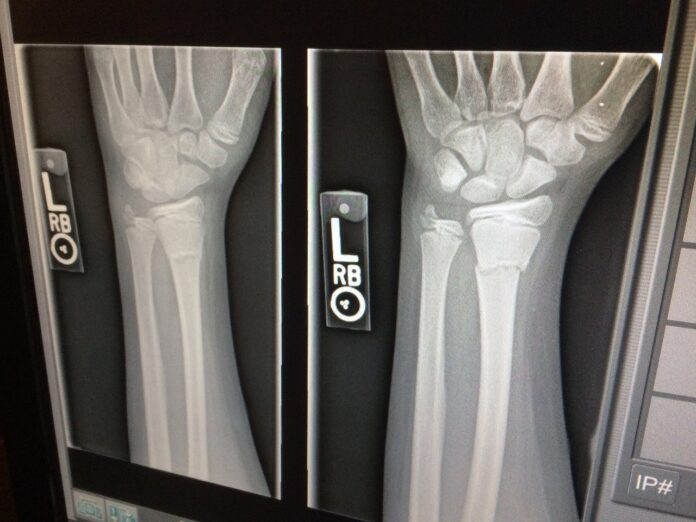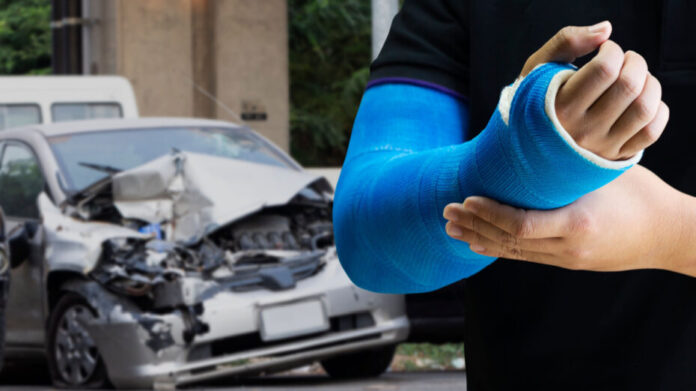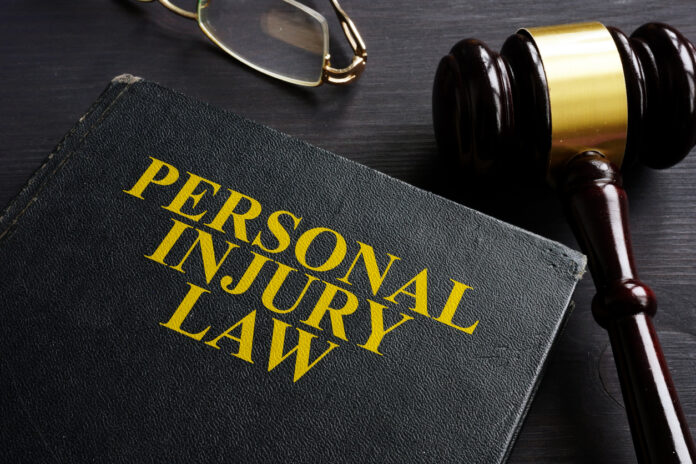Personal injury law can be complex and challenging when widespread myths and misconceptions obscure the reality of the process and its potential outcomes.
Personal injury law encompasses far more than the common association with car accidents, and understanding it in all its depth is pivotal for those considering filing a claim. This article debunks these common misconceptions and provides a clear, factual perspective on personal injury law.
In the realm of personal injury law, misinformation can lead to overlooked rights, unclaimed compensation, or even unsuccessful claims. Consequently, you should have a grounded understanding of personal injury law. This is the start to empowering you to make informed decisions should you ever find yourself entangled in a personal injury case.

Myth 1: Personal Injury Law is Only About Car Accidents
One of the most prevalent misconceptions surrounding personal injury law is the belief that it exclusively revolves around car accidents.
While it is true that car accidents are a frequent cause of personal injury claims, personal injury law encompasses a much more extensive range of cases. It extends into any situation where an individual has suffered harm due to the negligence of another party.
In fact, personal injury law covers a broad spectrum of incidents and accidents. Slip and fall accidents, which occur when someone is injured due to hazardous conditions on someone else’s property, are a prime example.
These types of accidents can result from poorly maintained sidewalks, wet floors, or inadequate warning signs. Victims of slip and fall accidents have the right to seek compensation for their injuries and associated expenses.
Medical malpractice falls within the realm of personal injury law. When medical professionals fail to uphold the appropriate standard of care, resulting in harm to the patient, personal injury claims can be pursued.
This could involve surgical errors, misdiagnosis, medication mistakes, or any form of negligence in the medical field.
Cases involving defective products can lead to personal injury claims. If a product is inherently dangerous, lacks proper safety warnings, or malfunctions due to a manufacturing defect, users who are harmed as a result can file personal injury lawsuits against the responsible parties.
These cases often involve extensive investigations to determine the liability of manufacturers, distributors, or sellers of the defective product.
Myth 2: I Don’t Need a Lawyer for a Personal Injury Claim

A frequently encountered myth is that it’s not necessary to hire a lawyer for a personal injury claim, considering it merely involves some paperwork. However, the truth is that personal injury law is replete with complex legal nuances and procedural requirements.
Retaining the services of an experienced Lake Charles personal injury lawyer can help steer you through these complexities, handle negotiations with insurance companies, and safeguard your interests. Attempting to proceed without legal assistance may result in you accepting a settlement far below what your claim is actually worth.
Myth 3: Injury Claims are a Quick Way to Get Rich
The idea that injury claims are an easy pathway to vast wealth is quite prevalent. However, personal injury law’s primary aim is not to enrich claimants but to restore them to their pre-injury position, to the extent possible.
The computation of compensation takes into account factors such as injury severity, medical expenses, loss of earnings, future earning potential, pain and suffering, amongst others. It’s less about winning a lottery and more about obtaining just compensation for the harm suffered.
The calculation of compensation in personal injury cases takes into account various factors that reflect the extent of the injury and associated damages. These factors include, but are not limited to, the severity of the injury, medical expenses, loss of earnings, future earning potential, and pain and suffering endured by the victim.
The aim is to provide recompense that adequately addresses the physical, emotional, and financial impact of the injury.
Personal injury claims are meticulously evaluated based on the specific circumstances of each case. Claims that involve more severe injuries or significant financial losses may result in greater compensation, while claims with minor injuries or minimal financial impact may yield lesser amounts.
It is essential to realize that the purpose of compensation is not to make the injured party wealthy but to alleviate their financial burden and help them recover from the damages caused by the incident.
In addition, personal injury claims require substantial evidence and documentation to support the claimant’s case. This can include medical records, expert opinions, witness testimonies, and other supporting evidence.
The process of gathering and presenting this evidence can be time-consuming and requires the expertise of a knowledgeable personal injury lawyer. It is also important to note that insurance companies often vigorously defend against personal injury claims, making it necessary to thoroughly build a strong case to secure fair compensation.
Myth 4: Minor Injuries are Not Worth a Claim

The belief that minor injuries don’t warrant a personal injury claim is another common myth. Even seemingly minor injuries can lead to significant medical costs, loss of earnings, and pain and suffering.
Moreover, what initially appears minor can sometimes have long-lasting effects that only become apparent over time. It’s advisable to seek legal counsel for any injury, no matter how minor it seems at first.
Myth 5: Pre-existing Conditions Will Negate Your Personal Injury Claim
One prevalent misconception is that having a pre-existing condition means your personal injury claim is void. This is not the case.
The legal principle of “eggshell plaintiff” states that defendants must take their victims as they find them. If an incident exacerbates a pre-existing condition, the defendant is usually liable for the additional harm caused.
Myth 6: The Responsible Party Will Pay Out Of Pocket

Some people mistakenly believe that if they win a personal injury lawsuit, the defendant will be personally liable to pay them, potentially causing financial hardship to the defendant.
In reality, insurance companies usually cover the majority of these costs. This myth can discourage some from pursuing valid claims out of concern for financially impacting another individual.
Personal injury law is often clouded by misconceptions that can deter individuals from pursuing rightful compensation. From understanding the broad reach of personal injury law to the necessity of hiring an experienced personal injury lawyer, it is important to manage these claims with accurate information.
Remember, personal injury claims are not a fast track to wealth, but a means to secure fair restitution for the harm suffered, whether the injuries are minor or major.
Pre-existing conditions do not necessarily invalidate your claim, and in most cases, it is insurance companies, not individuals, that cover the cost of compensation.
We encourage everyone to consult with legal professionals when dealing with personal injury cases to ensure the best possible outcomes.







